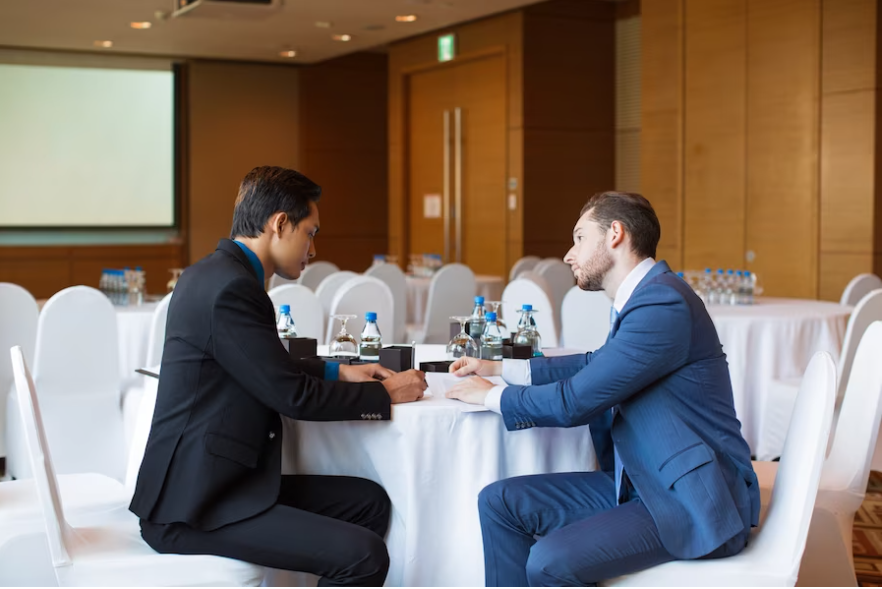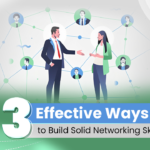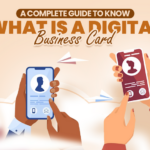
Networking at conferences can be a valuable and productive way to connect with professionals in your field, expand your network, and secure new business opportunities. Whether you’re a seasoned attendee or a first-timer, it’s crucial to approach networking with a plan to make the most of your time and maximize your opportunities for building meaningful connections.
This article will explore how to network at a conference and share tips and best practices for maximizing networking opportunities at a conference.
Why Is Networking At A Conference Important?
Networking at conferences is essential because it allows you to meet new people in your field and establish valuable connections that benefit your career. Networking can lead to new job opportunities, project collaboration, and exchanging ideas and information.
Networking at a conference offers several benefits, including learning about recent trends, techniques, and industry developments, furthering one’s career advancement goals, and devising creative solutions to problems. Conferences are ideal for finding potential clients, partners, and collaborators, aiding attendees in expanding their businesses and reaching newer markets.
Additionally, networking at a conference can lead to job, promotions, and career advancement opportunities whilst providing insights into new industries and job functions. Conferences also provide a space for exchanging ideas and insights and fostering creativity.
Now that we know why networking at a conference is essential let’s examine ways to do so successfully.
13 Ways To Network at a Conference That Will Guarantee Long-Lasting Business Connections
Let’s look at 13 ways to network at a conference that will help you further your networking efforts and grow professionally.
1. Attend all Conference, Events and Sessions
Attending conferences or events allows you to meet different people and create opportunities for conversation and connections. It allows you to connect with individuals with similar interests, goals, and expertise. This can lead to forming meaningful professional relationships, exchanging ideas and information, and even finding job opportunities.

To network effectively at a conference, you can follow these tips:
- Do Thorough Research: Learn about the attendees and speakers beforehand, and come up with a list of people you would like to meet.
- Make a Good First Impression: Dress appropriately and behave professionally. As they say, your first impression is your last impression.
- Start Conversations: Approach people with a smile and a genuine interest in what they do. Ask questions, listen actively, and express your thoughts and opinions while listening to others.
- Use Your Business Cards: Make sure you have plenty of business cards to hand out. This will make it easy for people to remember you and reach out to you later.
- Follow-Up: After the conference, contact the people you have met and continue the conversation. This can help strengthen your relationship and keep the connection alive.
- Be Social: Participate in all the social events and activities offered at the conference. These are often the best opportunities to network and get to know other attendees.
2) Volunteer at the Conference
Volunteering at the conference allows you to meet various people. Helping out with registration, directing attendees, or other tasks can allow you to interact with other attendees and make connections.

Volunteering gives you the perfect opportunity to network because it will enable you to interact professionally with attendees, speakers, and organizers. By offering your time and assistance, you can demonstrate your passion for the field and gain exposure to new ideas and individuals who may be valuable contacts in the future.
If you haven’t volunteered before and want to know more about it, here are a few tips:
- Research the conference: Look for information, including the dates, location, and theme.
- Find out about volunteer opportunities: Check the conference website or contact the organizer to inquire about volunteer opportunities.
- Prepare a brief introduction: Be ready to introduce yourself and explain why you would like to volunteer at the conference.
- Offer specific skills: Let the organizer know what specific skills you can offer, such as administrative support, event management, or technical assistance.
- Be professional: Dress appropriately, be punctual, and show a positive attitude throughout the conference.
- Network: Use networking opportunities with attendees and speakers, such as coffee breaks, meals, or social events.
- Keep in touch: After the conference, send thank-you notes to the organizers and individuals you met, and try keeping in touch with new contacts.
3) Use Social Media to Connect with Attendees Before the Conference
Utilize LinkedIn, Twitter, or the conference’s official event hashtag to connect with other attendees and start conversations before the event. Using social media to network at a conference can be beneficial because it allows you to:

Pic Courtesy: Freepik
- Connect with attendees before the event and arrange to meet in person.
- Share and follow updates and discussions related to the conference.
- Expand your network beyond the attendees you meet in person.
- Stay connected with attendees and speakers after the conference.
- Share your thoughts and experiences at the conference with your followers.
- Additionally, using social media at a conference can help enhance your professional brand and increase your visibility in your industry.
Attending a conference provides opportunities to network with professionals in your industry and expand your connections. To use social media effectively in a conference:
- Use Twitter to live-tweet the conference, share insights, and participate in the conversation using the conference’s official hashtag.
- Connect with other attendees on LinkedIn by sending them invitations or joining relevant groups.
- Share photos and videos on Instagram to showcase the conference’s highlights. Engage with other attendees through comments and direct messages on social media platforms.
- Use Facebook to join the conference group or event page to stay up-to-date with news and connect with others.
Being active on social media during the conference can increase your visibility, build relationships, and make lasting connections.
4) Join or Create a LinkedIn or Facebook Group for the Conference
Joining or Creating a LinkedIn or Facebook group specifically for the conference can be a great way to continue the conversation after the conference and stay connected with new contacts.

- Connection Building: The groups provide a platform for attendees to connect before, during, and after the conference. They can connect with people with similar interests, professionals from their industry, and attendees from different locations.
- Sharing Information: The groups serve as a central hub for conference-related information, including updates, agendas, and discussions. They allow attendees to share their thoughts, insights, and experiences.
- Networking Opportunities: The groups allow attendees to network and collaborate, even if they cannot attend the conference in person. They can engage in discussions, ask questions, and share information.
- Professional Development: Attending a conference and participating in its associated group can allow attendees to learn and grow professionally. They can connect with experts in their field, expand their professional network, and stay updated on industry trends and developments.
Here are a few practical tips for using social media groups to maximize your networking opportunities at a conference:
- Start early: Create the conference group well in advance to give people time to join and get to know one another.
- Make it exclusive: Make the group exclusive to conference attendees, speakers, and other professionals to foster a sense of community.
- Encourage interaction: Encourage members to share their thoughts, experiences, and insights about the conference.
- Use the group to schedule meetups: Encourage members to schedule meetups and networking sessions within the group.
- Share valuable content: To keep the group active and engaged, share valuable content such as conference agendas, speaker bios, and discussion topics.
- Encourage members to connect: Encourage members to connect on LinkedIn or Facebook after the conference to continue building their network.
5) Take Advantage of Networking Breaks
Use coffee breaks, lunch, and other opportunities to create conversations and connect.
Networking breaks during a conference allow attendees to step away from formal sessions, relax, and connect with others in a more informal setting.

These breaks are a great way to build rapport and develop new connections, exchange information and ideas, and expand one’s professional network. They can also help attendees make the most of their conference experience and achieve their goals.
Taking advantage of networking breaks at a conference can be beneficial as they provide opportunities to interact with other attendees in a relaxed and informal setting. This can help build relationships and potentially lead to new professional connections and opportunities.
Here are a few practical tips for making the most out of networking breaks at a conference:
- Preparation Matters: Research the attendees beforehand and have a list of people you would like to meet. Have a few conversation starters and questions to help break the ice.
- Be Present: Be engaged and focused on the conversation, actively listen to the other person, and make eye contact.
- Stay connected: Exchange business cards and follow up with an email or LinkedIn connection request within a day or two.
- Be yourself: Be genuine, authentic, and true to yourself. People appreciate real and honest interactions.
- Network outside your comfort zone: Seek out attendees from different industries or backgrounds and expand your professional network.
- Take advantage of structured networking events: Conferences often have organized networking sessions, like roundtable discussions or receptions, which provide a structured setting for networking.
6) Attend Social Events
Conferences often have receptions, cocktail hours, and other social break-out events. These provide excellent opportunities to network in a relaxed and informal setting.

Social events often bring together attendees from diverse backgrounds and industries, allowing attendees to expand their network and learn about new trends and developments in their field.
This can lead to valuable professional relationships and opportunities for collaboration and idea exchange.
Remember, networking at a conference is about building relationships, not just exchanging business cards. So, be friendly, open, and interested in others.
7) Bring Business Cards
Business cards are beneficial for networking at a conference because they provide a convenient and professional way for individuals to exchange contact information. You can have business cards in a physical or digital format.
They allow for a quick and easy reference for follow-up communication and serve as a physical reminder of the person and their company.

Carrying a business card can also demonstrate preparedness and professionalism, making a positive impression on potential connections. Having business cards at a conference can help networking by allowing people to remember your name and contact information after meeting you.
This can facilitate follow-up conversations and help establish professional connections.
Here are a few tips for using business cards effectively at conferences:
- Ensure your business card has all the necessary information: name, title, company, email, and phone number.
- Bring a sufficient number of cards. The more business cards you have, the more you can distribute them at any networking event. You would not want to run short of them while building connections at these conferences.
- Make sure your cards look professional and reflect your brand image.
- Exchange business cards with people you meet at the conference, and note what you discussed with the person on the back of each card. This will help you remember details and make more meaningful connections.
- Follow up with people you meet at the conference within a few days of returning home through email, phone, or LinkedIn.
- Use the business cards you collect to add people to your professional network on LinkedIn or other social media platforms.
8) Be Proactive
Don’t wait for others to approach you; be proactive and start conversations with people you want to connect with. Being proactive when networking at a conference can have numerous benefits, such as:

- Increased visibility: Proactive individuals are more likely to engage in conversations, participate in events, and make themselves known to others, thereby increasing their visibility and creating networking opportunities.
- Building meaningful connections: By initiating conversations and being proactive, you can form deeper connections with others and establish mutually beneficial relationships.
- Better use of time: Being proactive can help you make the most of your time at a conference by allowing you to focus on meeting the people and companies that align with your interests and goals.
- Increased opportunities: Proactive networking can help you identify new job opportunities, business partnerships, and other valuable connections you may not have otherwise discovered.
If being proactive is not your forte, don’t worry; we have you covered. Follow these tips, and you’ll be on your way to ace that networking opportunity.
- Researching the attendees and companies in advance and reaching out to individuals for potential meetings.
- Bringing business cards to share with new contacts.
- Attending networking events and actively participating in them.
- Being open-minded and approachable and actively seeking out new contacts.
- Following up with new contacts after the conference to maintain the relationship.
- Being an active listener and asking thoughtful questions to show genuine interest in others.
- Participating in activities and discussions that align with your professional interests and goals.
- Remember that networking is about getting something from others, building meaningful relationships, and offering value to others.
9) Offer to Connect Others With Your Network
Offer an introduction if you know someone who could be a helpful connection. Connecting others with your network can benefit networking at a conference for several reasons:
- Building Relationships: By connecting people, you are helping others build relationships and expand their networks. This can create a positive impression of you and strengthen your relationships with others.
- Demonstrating Value: Offering to connect others with your network shows that you are willing to help others and have a valuable network to offer. This can increase your value as a professional and make you a sought-after resource at future conferences.
- Expanding Your Network: By connecting people, you are also expanding your network. As you help others build relationships, they will likely remember your kindness and may return the favor.
Here are a few tips if you want to know how to connect people with others in your network.
- Be selective: Offer to connect people with others in your network that you believe will be valuable contacts for them.
- Be gracious: Offer to connect people with others in your network graciously and generously without expecting to receive anything in return.
- Always follow up: After offering to connect people with others in your network, follow up with them to see if they need any additional assistance or have any questions.
- Organize your network: Use a contact management tool to keep track of your network and make it easy to connect people with others in it.
10) Stay Connected Even After the Conference
Email or connect on LinkedIn to keep in touch and continue the relationship. Following up with connections after a conference can be beneficial for networking because it helps to maintain and strengthen the relationships formed during the event.

By reaching out and staying in touch, you can continue to build your network, share resources and information, and potentially identify new opportunities for collaboration. Additionally, following up can help to keep the conversation going, demonstrate your interest in maintaining the connection, and set the stage for future interactions.
Here are a few ways to follow up after the conference to gain solid, long-lasting connections.
- Personalize your follow-up: Use specific details from your conversation with the person at the conference to show that you remember them and are interested in connecting further.
- Be timely: Try to follow up within a week of the conference while your interaction is still fresh in both your and their minds.
- Make it easy: Offer multiple ways to connect, such as email, LinkedIn, or a coffee meeting.
- Provide value: Offer to share articles, resources, or other relevant information that may interest them.
- Be clear about your intentions: Let the person know why you want to stay in touch and what you hope to gain from the relationship.
- Follow up consistently: Stay in touch with your connections and continue building the relationship over time, especially if you hope to turn it into a professional opportunity.
11) Participate in Discussions and Ask Questions
Engage in the conversation, ask questions to build relationships, and create opportunities for follow-up conversations. Participating in discussions and asking questions at a conference is relevant for networking because it allows you to engage with other attendees, exchange ideas, and build relationships.

This can help you connect with potential collaborators, mentors, or future employers, expand your professional network, and gain new perspectives and insights on relevant topics.
Additionally, asking questions can demonstrate your interest and expertise in a particular subject and contribute to the overall quality of the conference.
Here are a few sure-fire tips for participating in discussions and asking questions to further your networking efforts:
- Do your Research: Thoroughly study the topic and the people you will be talking to so you can ask informed questions and contribute to the discussion.
- Be Engaging: Ask thoughtful questions, share relevant experiences and insights, and actively listen to others to show your investment in the conversation.
- Be Respectful: Avoid interrupting others and steer clear of controversial or sensitive topics.
- Be Relevant: Stay focused on the topic and avoid tangential conversations.
- Follow-Up: After the discussion, contact the people you met and connect with them on LinkedIn or other social media platforms.
- Take Notes: Jot down key points and follow-up action items during the discussion to help you remember the conversation and take action on what was discussed.
Following the aforementioned tips, you can effectively participate in discussions and ask questions to help you build meaningful connections and advance your networking goals.
12) Offer to Help Others
Show genuine interest in helping others and be willing to offer your expertise and resources. This can lead to valuable connections and relationships.
Offering to help others at a conference can help networking because it demonstrates a willingness to engage with others and build relationships. When you offer help, you can start a conversation and establish a connection that may lead to future opportunities for collaboration or even friendship.

Additionally, helping others can create a positive impression and enhance your brand, making you more memorable and potentially increasing your visibility within your professional network.
Here are a few ways in which you can offer help to others.
- Listen to their needs: Take the time to understand the other person’s needs, goals, and challenges. This will help you tailor your offer of help.
- Be genuine: Don’t offer help solely to advance your interests. Your offer should come from sincerity and a desire to assist the other person.
- Offer specific assistance: Instead of a vague offer of help, suggest specific ways to support the other person. For example, you could offer to introduce them to relevant contacts, share resources, or offer to help with a specific task.
- Follow up: Once you’ve made your offer, follow up to see if there’s anything else the person needs. This shows you’re invested in the relationship and want to help.
- Be patient: Building meaningful relationships takes time. Don’t expect immediate results from your networking efforts.
- Give without expectation: Offer help without expecting anything in return. This creates a positive trust-building dynamic in the relationship.
- Keep in touch: Regularly check in with the person and offer assistance when needed. This helps maintain the relationship and strengthens your network.
13. Make Use Of the Conference App
Getting the Conference App ready is necessary for making the most of networking opportunities. It provides a centralized platform for attendees to access information, connect, schedule meetings, and exchange ideas.

The app often has features like a virtual attendee list, a messaging system, and a personalized schedule builder that can significantly enhance the networking experience at a conference. It helps attendees maximize their time and make the most out of their investment by facilitating seamless communication and collaboration with others in the industry.
Let’s look at a few tips to use a conference app to further your networking efforts effectively:
- Complete your profile: Fill out your profile in the conference app and include information about your current job and interests to help others find common ground with you.
- Utilize the networking features: Many conference apps include features like attendee lists, messaging, and scheduling to help you connect with others.
- Reach out to attendees in advance: Send personalized messages to attendees you want to meet before the conference begins.
- Attend virtual events and sessions: Participate in virtual events and sessions, ask questions, and engage in discussions to make connections.
- Follow up after the conference: Use the app or other available contact information to follow up with people you met and continue building relationships.
Remember that networking is a two-way street, so listen, learn, and share your experiences and insights, making the most of the opportunity as it presents itself.
What Not To Do At A Networking Conference?
While these were some sure-fire ways of networking at a conference, it is also important to remember what not to do at a networking conference. They are:
- Don’t be pushy or overbearing: People can sense when someone only wants to make a sale or get something from them. Networking should be a natural, organic exchange of information and ideas.
Being pushy or overbearing at a conference can be perceived as aggressive and disrespectful, damaging your professional reputation and relationships with others.

Additionally, it can create an uncomfortable atmosphere for others, causing them to avoid interacting with you or not wanting to do business with you. Showing respect and consideration for others is a more effective way to build positive relationships and achieve your goals at a conference.
- Don’t neglect personal hygiene or appearance: First impressions are essential and can have a lasting impact. Neglecting personal hygiene or appearance can give off a negative impression to potential network contacts and negatively impact one’s professional image and credibility.
Maintaining good personal hygiene and grooming can convey respect for oneself and others and help build trust and confidence in professional interactions.
- Don’t monopolize conversations: Let others have a chance to speak and contribute to the conversation. Monopolizing conversations while networking at a conference is not recommended because it can make others feel uninterested, disrespected, and unvalued.

It can also prevent you from building meaningful connections. Others may not feel inclined to engage in further interactions with you if they feel you are only focused on talking about yourself or dominating the conversation. Be mindful of others and engage in reciprocal and collaborative conversations that allow for exchanging ideas and information.
- Don’t be negative or critical: Avoid complaining or speaking negatively about others or companies. Negativity and criticism can create a negative impression and damage professional relationships.
Networking is an opportunity to build connections and make positive impressions, so focusing on being polite, respectful, and supportive is essential. Negative or critical comments can also generate unwanted conflict, making it less likely that you will be able to make valuable connections or achieve your networking goals.

Additionally, negative comments can limit your ability to learn and grow from the conference experience. It’s always better to approach networking with a positive, open-minded attitude and focus on finding common ground and building relationships.
- Don’t neglect to follow up: After the conference, follow up with the contacts you made, send a quick note, or connect on LinkedIn to keep the relationship alive. Following up after networking at a conference is crucial because it helps maintain connections and can potentially lead to future business opportunities, collaborations, or job offers.
Neglecting to follow up can result in losing valuable contacts and missing potential growth and advancement opportunities. Additionally, following up shows professionalism, demonstrates interest, and reinforces the connection made at the conference.
How Does Eventible Help?
Attending events is essential from a networking perspective because it allows individuals to expand their professional network, learn about new trends and developments in their field, and gain exposure to potential business opportunities or job leads.
It also allows one to showcase one’s expertise, meet new people, and establish mutually beneficial relationships. Furthermore, events can help individuals build their brand and gain visibility in their industry, leading to more professional growth and success opportunities.
At Eventible, we give you a platform to review B2B events and read what others–speakers, attendees, and sponsors—say about them. Based on the reviews collected, you can select which event provides the best networking opportunities and is worth attending.
Key Takeaway
Attending a conference offers numerous opportunities for networking and building professional relationships. There are different ways to make the most out of a conference, whether through formal networking events, informal conversations during breaks, or connecting with individuals on social media.
The key is to be proactive, approachable, and open to forming new connections. By taking advantage of the various networking opportunities available, you can expand your professional network, learn from your peers, and gain valuable insights to help you grow in your field.





Comments are closed.